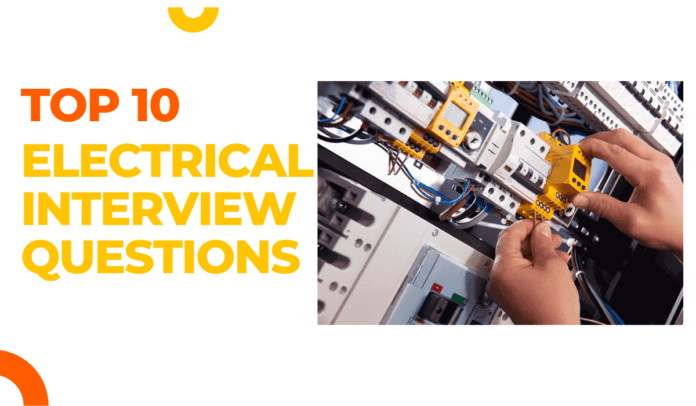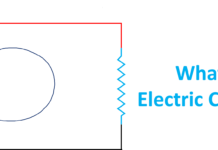A successful interview is frequently necessary to get a job in the broad and lucrative area of electrical engineering. It’s essential to be well-prepared for the technical questions that may be asked during an electrical interview, regardless of your level of expertise or whether you’re a fresh graduate or a seasoned professional.
I have created a list of the top 10 electrical interview questions and their answers to help you crack interviews.
What is the difference between a conductor and an insulator?
Insulators are substances that restrict or obstruct the flow of electric current, whereas conductors readily allow it to flow. Metals like copper and aluminum are examples of conductors, whereas rubber and glass are frequently used insulators.
Explain the difference between alternating current (AC) and direct current (DC).
Electric current is of two types: AC and DC. AC switches between positive and negative cycles. It frequently serves as a power distribution system. Contrarily, DC only runs in one direction and is frequently employed in batteries and electrical equipment.
What is the purpose of a transformer in an electrical system?
In an electrical system, a transformer is used to step up or step down voltage levels. It is made up of magnetically connected primary and secondary coils. Transformers are essential for balancing voltage levels between various parts of a power system and for efficiently transporting electrical power over long distances.
How does a circuit breaker differ from a fuse?
Fuse and circuit breakers are both used for human and equipment safety. Fuse-based devices must be replaced after they blow, whereas circuit breakers are one-time-use devices that can be reset manually or automatically.
What is the purpose of grounding in an electrical system?
In the case of a malfunction or electrical surge, grounding offers a secure pathway for electrical current to pass into the earth. It guards against equipment damage and helps stop electric shocks. Electrical systems are normally grounded by being connected to a grounding electrode, such as a metal rod buried in the ground.
What is the difference between a synchronous motor and an induction motor?
A synchronous motor runs at a synchronous speed. Synchronous speed means when the speed of the rotating magnetic field of the stator winding matches with the rotor. It is frequently utilized in applications that call for precise speed control, such as industrial machines.
An induction motor, on the other hand, operates at a speed that is a little slower than the synchronous speed and is more frequently utilized in general-purpose applications and home appliances.
How does a three-phase induction motor work?
A stator and a rotor make up a three-phase induction motor. Currents are induced in the rotor by the stator’s revolving magnetic field, which in turn generates a magnetic field. The rotor rotates as a result of the interaction between these magnetic fields, pushing the mechanical load attached to the motor.
What are the advantages of using a programmable logic controller (PLC)?
PLCs are frequently utilized in industrial automation to manage and keep an eye on equipment and controls. The ability to link with a variety of sensors and actuators, high dependability, easy troubleshooting, reliability, and flexible programming are some benefits of using PLCs.
Explain the concept of the power factor and its importance in electrical systems.
The power factor in an electrical system is the ratio of actual power (watts) to apparent power (volt-amperes). It shows how effectively power is used. Increased power losses and decreased system efficiency may be caused by a low power factor. Techniques for power factor adjustment are used to raise the power factor and maximize energy usage.
How would you troubleshoot an electric motor that fails to start?
You can use a methodical process to diagnose a motor that won’t turn on. First, make sure the power supply is sufficient by checking it. Next, look for any obvious damage or loose connections on the motor. Make sure the motor’s safety features, such as overload relays, are working properly. Finally, test the voltage and continuity at various motor terminals using a multimeter or other testing equipment.
Conclusion
Studying theoretical concepts, brushing up on technical knowledge, and honing problem-solving techniques are all necessary for interview preparation in the electrical industry.
You’ll be better prepared to impress potential employers and improve your chances of landing the job if you are aware of the top 10 electrical interview questions and their solutions.
Remember that demonstrating your skills as an electrical professional requires confidence and effective communication.
I wish you luck in your interview!






